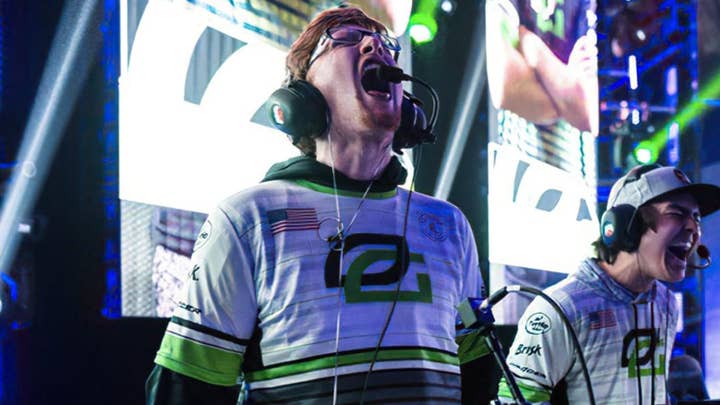Optic Texas CEO and player sue Activision alleging Call of Duty League monopoly
Publisher accused of anti-competitive practices in charging "extortionate" $27.5 million entry fees to teams, steering owners to give up teams to billionaire investors
The CEO and former star player of Call of Duty League team Optic Texas filed a lawsuit against Activision Blizzard yesterday, accusing the publisher of wielding an unlawful monopoly over professional Call of Duty leagues and engaging in anti-competitive and extortionate behavior to the detriment of players and teams.
As reported by Bloomberg Law, the suit was brought by Hector "H3CZ" Rodriguez and Seth "Scump" Abner, and accuses Activision Blizzard of laying down the foundation of a monopoly in January of 2016 by acquiring Major League Gaming, eliminating what would have been the biggest competitor to an Activision-owned Call of Duty esports league.
The suit says Activision refused to grant licenses to other tournament and league organizers so that its eventual Call of Duty League would be the only game in town, then it limited that league to 12 teams and demanded a $27.5 million entry fee from any would-be team, along with "an Activision-approved corporate partner" for any teams owned by individuals.
That last term became an issue for Rodriguez when he tried to become an independent team owner in late 2020 by buying Immortals Gaming Club's slot in the league.
"Activision told Rodriguez it would never allow him to own and operate a team on his own," the suit says. "On a conference call, one Activision executive explicitly told Rodriguez that he was not the 'type of owner' Activision wanted for the league. Activision made clear to Rodriguez that he would be required to 'partner' with billionaire investors who 'looked' like Activision's ideal or leave the professional Call of Duty market altogether."
The suit says the company of those investors – Envy Gaming – demanded a 92.5% ownership share in Optic, leaving Rodriguez with the choice of relinquishing control of the team or undermining its value by dropping its Call of Duty team.
The suit also noted the league's Competitive Balance Tax as a wage suppression technique (something the US Department of Justice agreed with as it sued Activision Blizzard last year over the issue) and aggressive tactics used on players like Abner, who it says were pressured to agree to legal documents while at a photoshoot, without being given time to review them or seek legal input, "under threat of being excluded from the Activision CoD League absent immediate acquiescence to its terms."
The plaintiffs also note Activision's rules for teams and players severely restricted their ability to earn compensation, sponsorship, and streaming money except through Activision.
"Activision's self-interested decisions and failure to innovate or maintain the quality of the Activision CoD League were possible only because the total lack of competition in the professional Call of Duty market, which Activision could not have been able to accomplish but for its unlawful monopoly power," the suit reads.
The plaintiffs are seeking more than $680 million in damages between the various causes of action, as well as legal fees.
Optic Texas is scheduled to play the Los Angeles Thieves this Sunday.
Update, February 17: An Activision Blizzard representative responded to our request for comment, saying, "Mr. Rodriguez (aka OpTic H3CZ) and Mr. Abner (aka Scump) demanded that Activision pay them tens of millions of dollars to avoid this meritless litigation, and when their demands were not met, they filed.
"We will strongly defend against these claims, which have no basis in fact or in law. We are disappointed that these members of the esports community would bring this suit which is disruptive to team owners, players, fans, and partners who have invested so much time and energy into the Call of Duty League's success."

